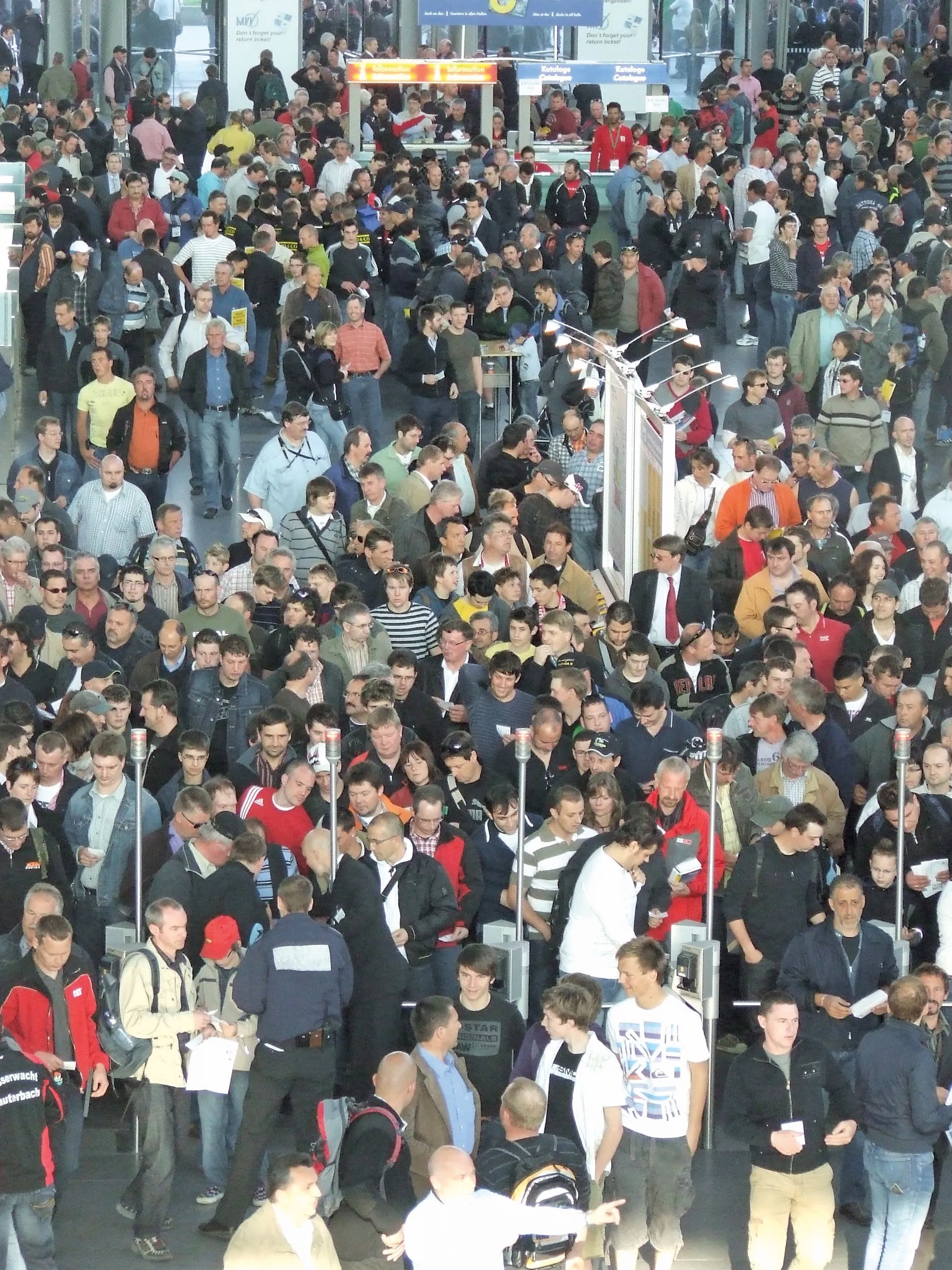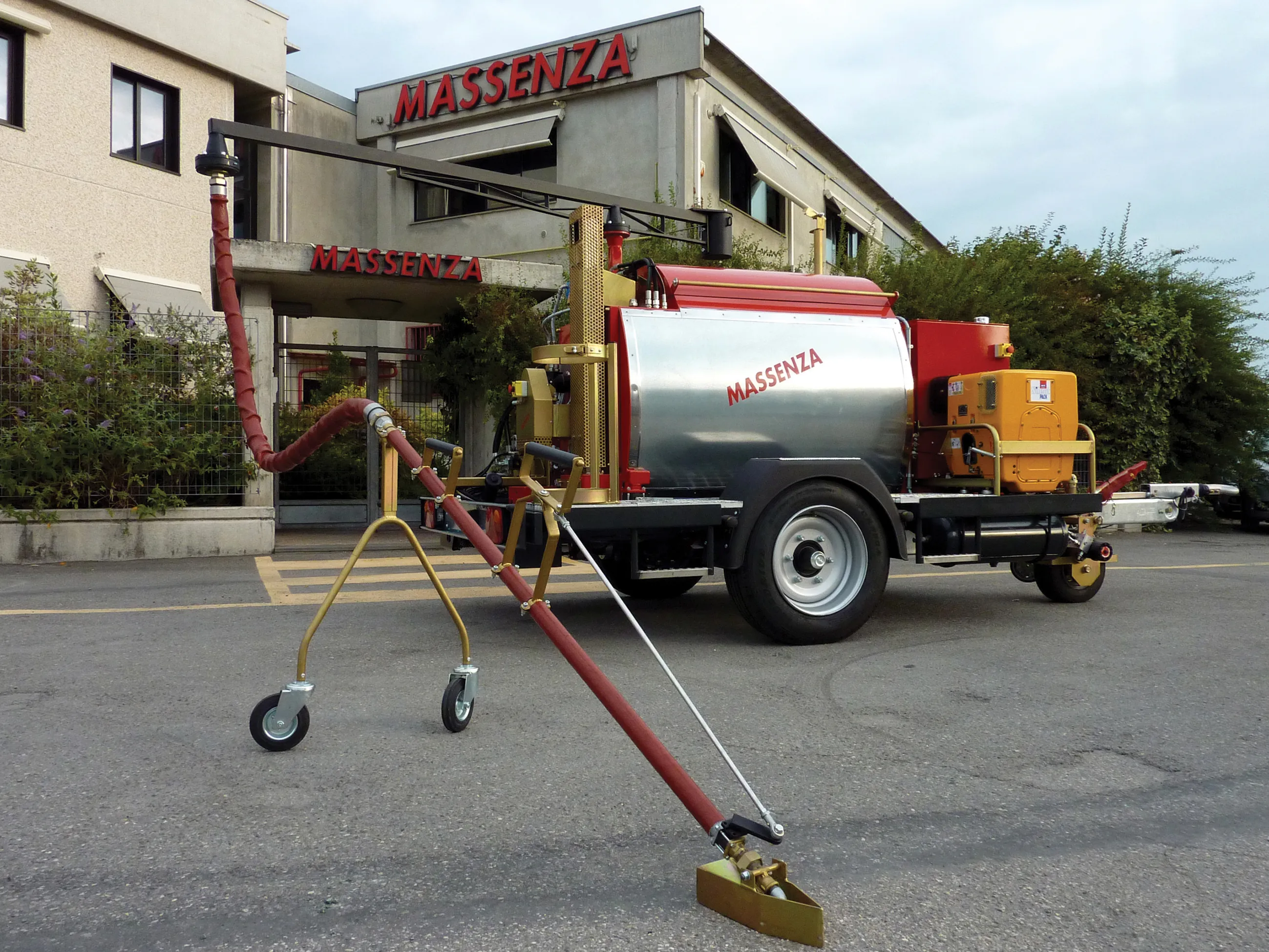Russia is one of the “growth engines” for the European construction equipment industry, says Ralf Wezel, secretary general of CECE, the European Construction Equipment Association. According to the CECE, one out of three tower cranes produced and sold in Europe are currently going to Russia. The Association says that Russian governmental and private projects in the oil and gas industry and in the infrastructure and housing sectors are stimulating demand, with building hoists, truck mixers, concrete batching
June 4, 2013
Read time: 4 mins

Russia is one of the “growth engines” for the European construction equipment industry, says Ralf Wezel, secretary general of 3399 CECE, the European 3418 Construction Equipment Association.
According to the CECE, one out of three tower cranes produced and sold in Europe are currently going to Russia. The Association says that Russian governmental and private projects in the oil and gas industry and in the infrastructure and housing sectors are stimulating demand, with building hoists, truck mixers, concrete batching plants, mixing systems and concrete pumps all highly sought after for construction works. However, the CECE says that sales of road equipment have decreased considerably in the first quarter of this year.
“Despite this, Russia remains to be one of the growth engines for our industry”, said Wezel at5848 CTT, Russia’s major construction equipment trade show taking place in Moscow from June 4 to 7.
The situation in Europe has not changed much in the first quarter of 2013, says CECE. While Southern Europe is waiting to see some light at the end of the tunnel, Western and Northern Europe are remaining better off. According to recent CECE figures, sales of earthmoving and road equipment dropped by 20 and 30% respectively compared to the same period the year before, and the bottom is not yet hit in some Southern European countries. In 2007 the combined market share of Portugal, Spain, Italy and Greece accounted for almost 25% of European sales, but in Q1 2013 this number only amounts to 3.5%. The CECE says that building construction equipment remains the only sub-sector where slight growth can be seen, though this growth only comes from some regions like Russia, Scandinavia, Turkey or Germany.
According to the CECE, the European construction equipment industry expects sales to improve significantly in the second quarter of this year, as the long winter had delayed construction activity and investments. The CECE says companies also reported a very good order intake at and after688 Bauma 2013. The Association’s business barometer confirms this positive trend. Increased confidence of European companies about future sales pushed the business climate index of May over the zero line. However, the CECE believes that even with an optimistic scenario of good growth in the next quarters, it will be difficult to compensate the early deteriorations over the year, particularly for earthmoving and road equipment.
In 2012 the European construction equipment industry increased their turnover by 3.4% reaching a volume of €25 billion. For 2013 it is expected that the overall sales will stay on the level of 2012. The CECE says that European manufacturers are expecting to compensate the drop in European demand by increased sales outside Europe, where most markets are supposed to show an upward trend.
During CTT 2013, CECE has reiterated its desire for a fair competitive trading environment and open markets for the European construction equipment industry. Only under these conditions, says CECE, can the best technology be taken to countries to improve infrastructure, living and working conditions, to save costs and to lower bad impacts on the environment. Presently in Russia non-Russian companies are said by CECE to be currently suffering from the disposal fee that the Russian government imposed in September 2012, payable for each wheeled vehicle imported to Russia or manufactured in Russia. CECE says that although it supports the approach of the Russian government to ensure ecological safety in the Russian Federation subject to balanced and economically justified rates, the Association, via the national Russian member association AEB, also advocates equal treatment towards all manufacturers. In addition, CECE identifies the need for revision of the Government Resolution taking into consideration specificity of the construction equipment manufacturing, recycling processes, and economic effect of the disposal fee rates for this machinery on the Russian economy. CECE and AEB are currently working with the Russian Ministry of Trade and Industry on amending the legislation.
Andrey Komov, chairman of the AEB Construction Equipment Committee, said, “We hope that the Russian Government takes into consideration the AEB recommendations and corrects shortcomings of the resolution on recycling fee with respect to the construction equipment industry”.
According to the CECE, one out of three tower cranes produced and sold in Europe are currently going to Russia. The Association says that Russian governmental and private projects in the oil and gas industry and in the infrastructure and housing sectors are stimulating demand, with building hoists, truck mixers, concrete batching plants, mixing systems and concrete pumps all highly sought after for construction works. However, the CECE says that sales of road equipment have decreased considerably in the first quarter of this year.
“Despite this, Russia remains to be one of the growth engines for our industry”, said Wezel at
The situation in Europe has not changed much in the first quarter of 2013, says CECE. While Southern Europe is waiting to see some light at the end of the tunnel, Western and Northern Europe are remaining better off. According to recent CECE figures, sales of earthmoving and road equipment dropped by 20 and 30% respectively compared to the same period the year before, and the bottom is not yet hit in some Southern European countries. In 2007 the combined market share of Portugal, Spain, Italy and Greece accounted for almost 25% of European sales, but in Q1 2013 this number only amounts to 3.5%. The CECE says that building construction equipment remains the only sub-sector where slight growth can be seen, though this growth only comes from some regions like Russia, Scandinavia, Turkey or Germany.
According to the CECE, the European construction equipment industry expects sales to improve significantly in the second quarter of this year, as the long winter had delayed construction activity and investments. The CECE says companies also reported a very good order intake at and after
In 2012 the European construction equipment industry increased their turnover by 3.4% reaching a volume of €25 billion. For 2013 it is expected that the overall sales will stay on the level of 2012. The CECE says that European manufacturers are expecting to compensate the drop in European demand by increased sales outside Europe, where most markets are supposed to show an upward trend.
During CTT 2013, CECE has reiterated its desire for a fair competitive trading environment and open markets for the European construction equipment industry. Only under these conditions, says CECE, can the best technology be taken to countries to improve infrastructure, living and working conditions, to save costs and to lower bad impacts on the environment. Presently in Russia non-Russian companies are said by CECE to be currently suffering from the disposal fee that the Russian government imposed in September 2012, payable for each wheeled vehicle imported to Russia or manufactured in Russia. CECE says that although it supports the approach of the Russian government to ensure ecological safety in the Russian Federation subject to balanced and economically justified rates, the Association, via the national Russian member association AEB, also advocates equal treatment towards all manufacturers. In addition, CECE identifies the need for revision of the Government Resolution taking into consideration specificity of the construction equipment manufacturing, recycling processes, and economic effect of the disposal fee rates for this machinery on the Russian economy. CECE and AEB are currently working with the Russian Ministry of Trade and Industry on amending the legislation.
Andrey Komov, chairman of the AEB Construction Equipment Committee, said, “We hope that the Russian Government takes into consideration the AEB recommendations and corrects shortcomings of the resolution on recycling fee with respect to the construction equipment industry”.






